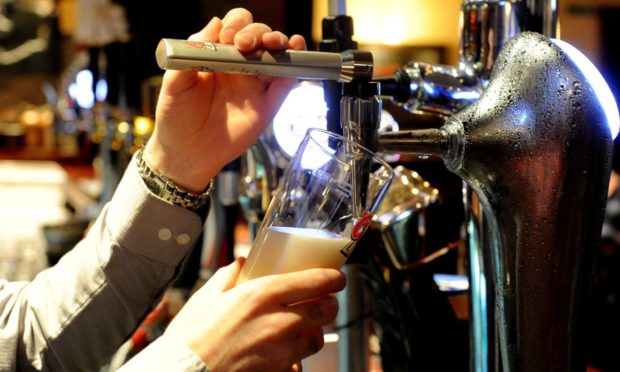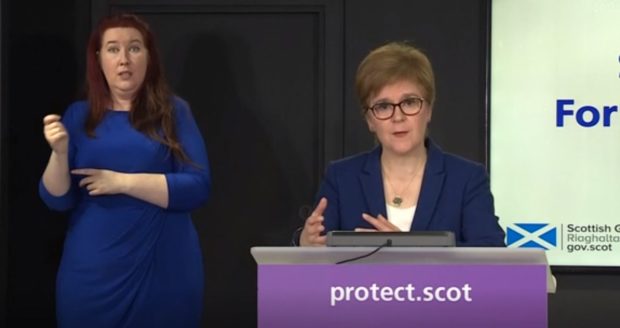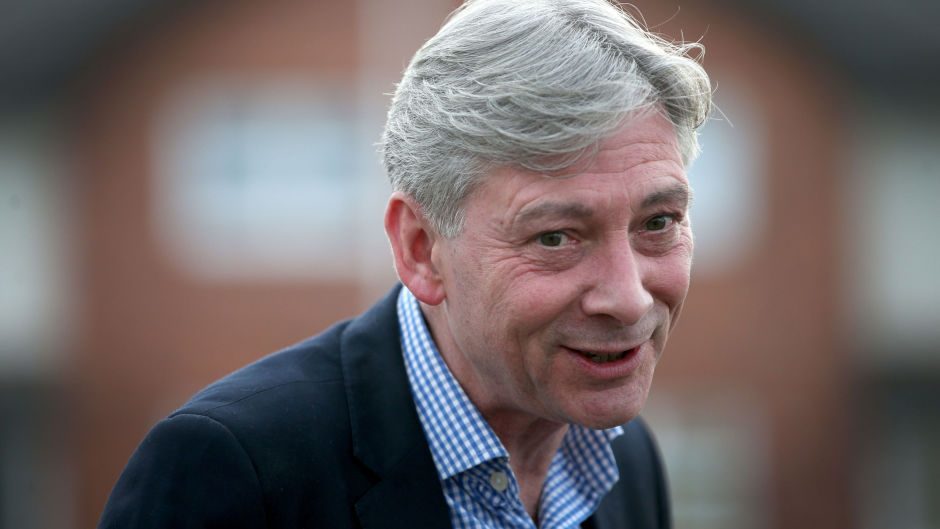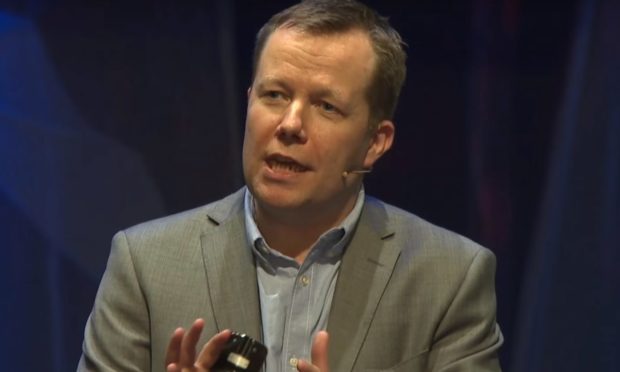Tough restrictions on hospitality have been extended for a further week and could go on even longer, as industry leaders warn the decision “could be the end of Scotland’s pubs as we know them”.
Nicola Sturgeon confirmed bars and restaurants in central Scotland will remain closed and a ban on all licensed premises selling alcohol indoors will be kept in place until November 2 ahead of the introduction of a new five-tier coronavirus alert system.
Speaking during her daily briefing on Wednesday, as the country recorded 28 new Covid-19 deaths – the highest since May 21, Ms Sturgeon said it would be “premature” to lift restrictions and that do so could “undo” the work already done.
The Scottish Government will publish details of its new multi-tier restrictions system on Friday but the first minister said she could not rule out hospitality restrictions, which were initially planned to last for 16 days, continuing beyond November 2.
The announcement prompted outrage from the sector and warnings of a looming jobs crisis, with one industry spokesman claiming businesses had been “offered up as a sacrificial lamb without sufficient evidence”.
Ms Sturgeon said that while there was “cautious optimism” that restrictions are working, the clinical advice was that it would not yet be safe to lift the measures.
“I know all of this is really unwelcome, and I know that these restrictions are harsh,” the SNP leader said. “They’re harsh financially for many individuals and businesses and they are harsh emotionally for all of us.
The first minister said she had agreed with her cabinet that the short-term restrictions should remain in place to ensure a “smooth transition to the new system”.
The new framework will include details of financial support for businesses legally forced to close or restrict their business, which Ms Sturgeon said will be “broadly similar” to what is on offer in other parts of the UK.
But it has emerged the plans were met with immediate resistance as they were briefed to political leaders at Holyrood on Tuesday, including criticism over an apparent lack of detail provided by the Scottish Government.
Businesses ‘crippled to the point of no return’
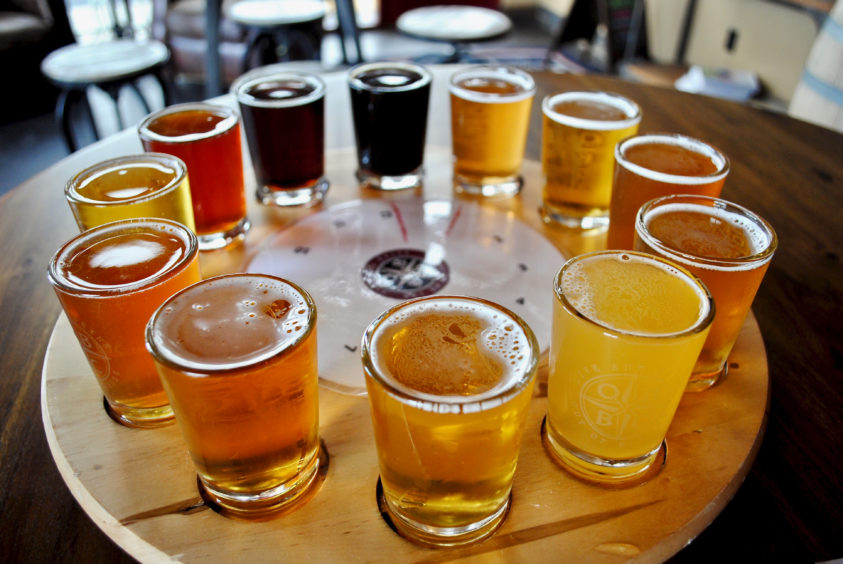
Joe Crawford, director for Scotland at CAMRA (the Campaign for Real Ale), said the announcement had come as a “hammer blow” and without a longer-term support package, it could mean last orders for many businesses.
Dr Liz Cameron, chief executive of the Scottish Chambers of Commerce, warned businesses across the supply chain “will be absolutely devastated that restrictions now look to be in place indefinitely”.
“We were advised that temporary restrictions would help to reduce spread of the virus,” Dr Cameron said. “But now the temporary restrictions have been extended, which make it impossible for businesses to rebuild and protect jobs.
“This short term, reactive approach is no longer enough. Where is the plan that we can all get alongside to help Scottish Government to both manage the virus and ensure the economy can also return to health?”
Stephen Montgomery, spokesman for the Scottish Hospitality group, said some operators outside the central belt have been forced to close as they cannot trade viably under current restrictions but are not eligible for full Scottish Government support.
He stressed that without further financial support, Scotland’s hospitality industry will be “crippled to the point of no return”.
It doesn’t look like we’re in control of the situation.
Scottish Liberal Democrat leader Willie Rennie
Scottish Conservative leader Douglas Ross accused the Scottish Government of failing to use time during the closures to work with businesses “to develop ways they can reopen again with confidence”.
“Businesses are not being involved in decisions that will have huge knock-on consequences for Scottish jobs,” he said. “The Scottish Government’s own advisers say that 100,000 Scottish jobs are at risk. If the SNP keep stalling, those jobs will be lost.”
Scottish Labour leader Richard Leonard said the public “need clarity over what restrictions they will be living with and what support will be available to them” and called for information to be made available “as a matter of urgency”.
Scottish Liberal Democrat leader Willie Rennie said: “We have had four strategies in three weeks, starting with the route map then the 16 days of restrictions that has now turned into 23 days, and we will have the new strategy announced on Friday.
“It doesn’t look like we’re in control of the situation.”
Scotland recorded 1,739 positive tests overnight into Wednesday and there were 873 people in hospital with confirmed cases of the virus, a rise of 49 in one day. Of those patients, 73 were in intensive care – a rise of three.
Ms Sturgeon said the continuing rise in infections and deaths was “clearly concerning” but she believed it “should not be taken as an indication that the current restrictions we are living under are not having any impact”.
“We do believe these restrictions will make a difference, and we believe they may already be making a difference,” she said. “Even allowing for today’s figures, we may be seeing a reduction in the rate at which new cases are increasing.”
‘Your behaviour today literally saves lives’
National clinical director Jason Leitch said the latest statistics, both in Scotland and across the world, were a “stark warning” of what Covid-19 can do but that there were also “grounds for cautious optimism”.
An evidence paper by clinical advisers published on September 30 said the time for the number of cases to double in Scotland had reduced from 11 days to nine.
If it had continued to rise at the same rate, there should have been 2,100 new cases by October 16 but Scottish Government statistics recorded 1,196 on that day.
“That would suggest the restrictions in place, the household ones to the hospitality ones, are working,” Professor Leitch said. “But they are working slowly – that’s why we are reluctant to move away from them.
“Your behaviour today literally saves lives. But not today. It saves those lives three to four weeks from now. This is not like doing life support at the side of the road and saving a life in that half hour.
“It is much further away, your hand washing, your social distancing, your reducing social interaction, saves yours and other lives and that’s why it is so important you stick to these restrictions.”
